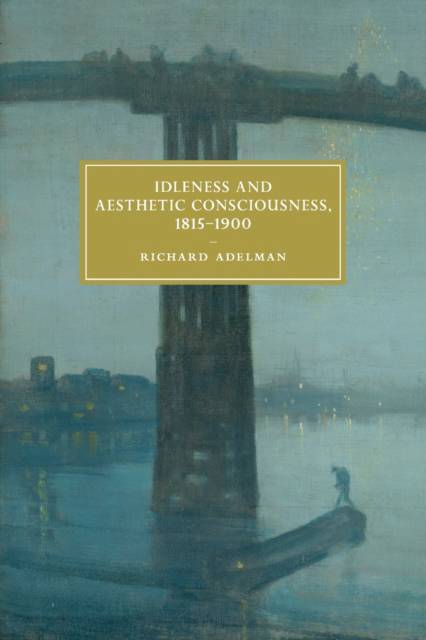
- Afhalen na 1 uur in een winkel met voorraad
- Gratis thuislevering in België vanaf € 30
- Ruim aanbod met 7 miljoen producten
- Afhalen na 1 uur in een winkel met voorraad
- Gratis thuislevering in België vanaf € 30
- Ruim aanbod met 7 miljoen producten
Zoeken
Omschrijving
Charting the failure of the Romantic critique of political economy, Richard Adelman explores the changing significances and the developing concepts of idleness and aesthetic consciousness during the nineteenth century. Through careful analysis of some of the period's most influential thinkers, including John Stuart Mill, George Eliot, John Ruskin and Karl Marx, Adelman weaves together evolving ideas across a range of intellectual discourses - political economy, meditative poetry, the ideology of the 'gospel of work', cultural theory, the Gothic and psychoanalysis. In doing so, he reconstructs debates over passivity and repose and demonstrates their centrality to the cultural politics of the age. Arguing that hardened conceptions of aesthetic consciousness come into being at moments of civic unrest concerning political representation and that the fin-de-siècle witnesses the demonization of the once revolutionary category of aesthetic consciousness, the book demonstrates that late eighteenth-century positivity around human spirituality is comprehensively dismantled by the beginning of the twentieth century.
Specificaties
Betrokkenen
- Auteur(s):
- Uitgeverij:
Inhoud
- Aantal bladzijden:
- 250
- Taal:
- Engels
- Reeks:
- Reeksnummer:
- nr. 112
Eigenschappen
- Productcode (EAN):
- 9781108439381
- Verschijningsdatum:
- 26/11/2020
- Uitvoering:
- Paperback
- Formaat:
- Trade paperback (VS)
- Afmetingen:
- 152 mm x 229 mm
- Gewicht:
- 340 g

Alleen bij Standaard Boekhandel
+ 129 punten op je klantenkaart van Standaard Boekhandel
Beoordelingen
We publiceren alleen reviews die voldoen aan de voorwaarden voor reviews. Bekijk onze voorwaarden voor reviews.








